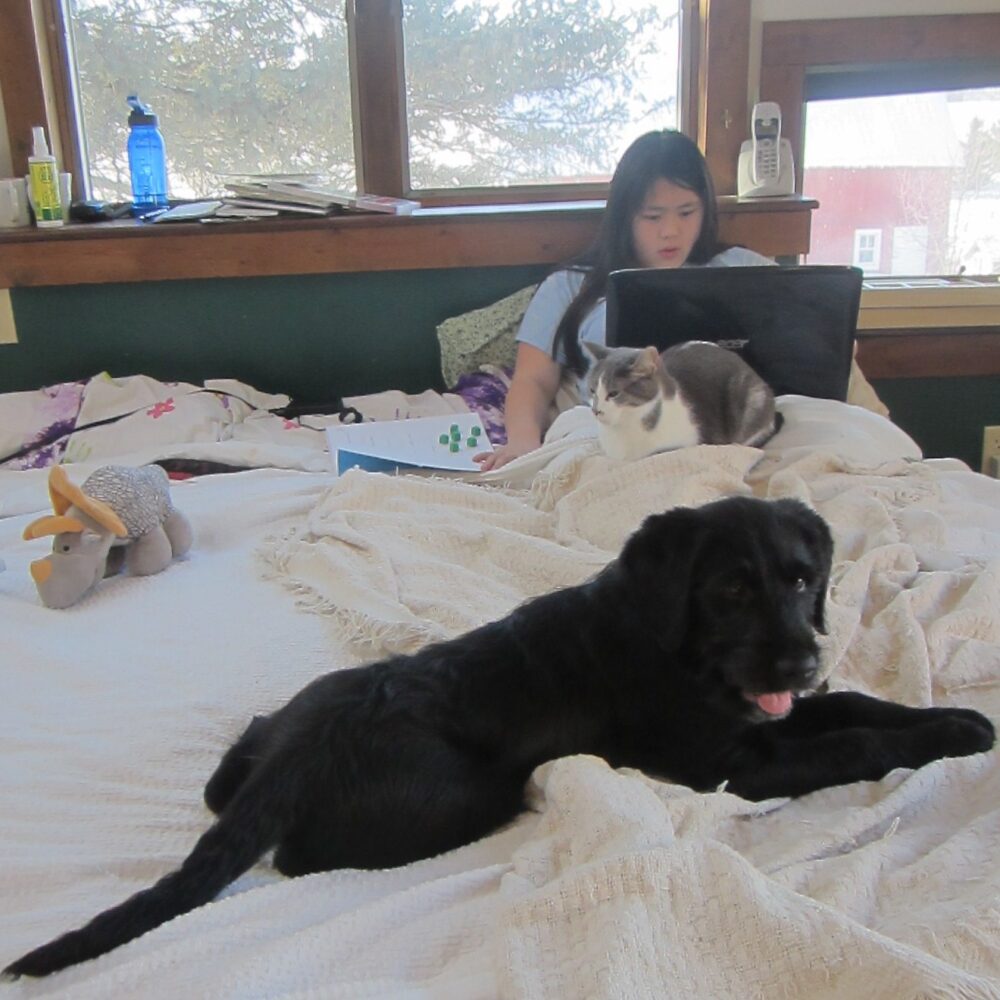
My friend and community colleague Margie Morris wrote a wonderful article for a clinical neuroscience journal that, with her permission, I am excerpting for a series of posts (if you missed it, here’s the first one).
She writes:
To meaningfully connect, we will need to do more than show up online. Now, more than ever, it’s important to use technology intentionally.
– Margaret Morris
Here is today’s excerpt:
“Colleagues who formerly interacted in an office are now virtually in each others’ homes and drawing on contextual cues to forge deeper connections. One director’s impressions of her hard-working teammates are reinforced: color-coordinated pillows appear behind her fastidious assistant, while a no-nonsense higher up reveals his basement surroundings and even the cardboard box supporting his laptop. Others find colleagues more relatable as they catch glimpses of children, pets, and living spaces. Not everyone wants to reveal themselves or their homes, however, and sensitivity to the cultural and individual factors underlying these boundaries is critical. The revealing of personal space is especially salient in therapy, which traditionally required meeting in person. Trained to listen within the boundaries of a session, some therapists feel invasive and personally uncomfortable peering into patients’ domestic lives. One therapist I interviewed felt ambushed when she saw her video therapy client, a man in his thirties, in his kitchen wearing a “onesie.” Along with awkward revelations, there are rich cues in patients’ homes that therapists can draw on to deepen their understanding of that person’s struggles. Similarly, when a patient comments on something in a therapist’s home, it is an opportunity to open the conversation and deepen rapport.”
(End of quote.)
Jane Sarasohn-Kahn recently wrote about a survey conducted in France, Germany, the UK, and the U.S. which found that higher-income, older, “empowered” consumers are more likely than others to want to meet virtually with a clinician. But she notes that our wishes and hopes are often not met by the reality of our current health care (or education) systems.
Zoom meetings are also a more elite activity. Early in the pandemic here in the U.S., the Pew Research Center conducted a survey which found that 46% college graduates said they have participated in a work meeting by using video calling or online conferencing, compared with just 11% of U.S. adults who have a high school education or less.
In the same survey, 64% of U.S adults said online social platforms and the phone will be useful for everyday social interactions, but they will not be a replacement for face-to-face communications. I wonder what their answers would be now, four months later?
Personally, I’m a big fan of Zoom’s virtual background feature and have placed myself in space, on a beach, and in a kayak for some of my meetings. How about you? Have you curated your background, either virtual or real? Do you follow Room Rater and get a thrill from seeing famous people’s inner sanctums?
Please tell me what you think in the comments below.
Image: “Cooper’s First Day of Homeschooling” by Ann on Flickr.
This sentence from your excerpt Margie’s paper jumped out at me: “Trained to listen within the boundaries of a session, some therapists feel invasive and personally uncomfortable peering into patients’ domestic lives. ”
It just reminded me of how health professionals purposely, through their training and practices, make only a limited effort to understand the real complexity of our lives. Margie’s example is similar to projects we’ve been involved in, in which clinicians and medical researchers limit themselves to clinical settings for speaking with patients and families. When some researchers actually visited patients and families in their homes, what they learned was so different and often much richer.
Perhaps therapists need more training in anthropology and ethnography to be able to feel comfortable in and learn from observing real-world environments (or the facsimile you get through the Zoom video).
Thank you Raj. I agree that therapists and other clinicians are missing opportunities to strengthen rapport and grasp how health struggles play out in daily life. My video calls with clients often include some aspect of a home tour, which is super helpful for understanding household technology dynamics.